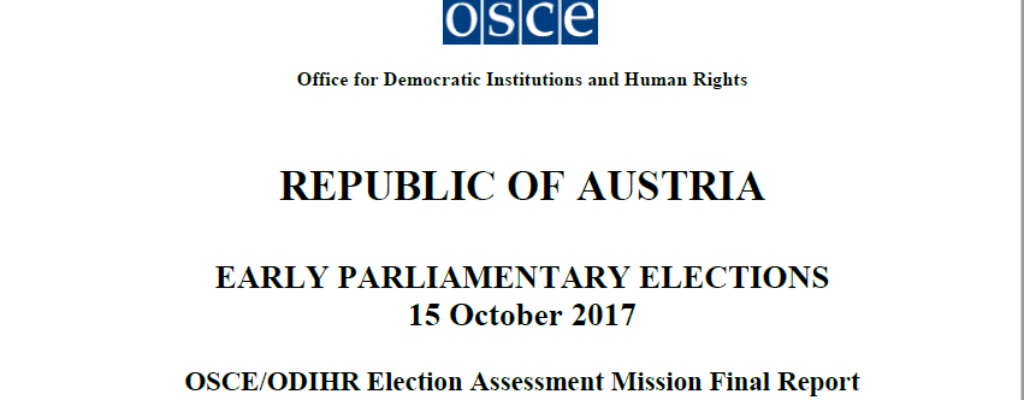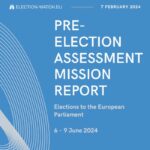
Who follows up to OSCE recommendations?
At the end of March, Member of the National Council, Alfred Noll, sent a written request to the Federal Minister of Interior, Herbert Kickl, regarding the OSCE/ODIHR Final Report on the 2017 National Council elections and the implementation of the recommendations contained therein. Noll wanted to know if, when and in what form 16 of these outstanding recommendations would be dealt with or for which reasons there was no implementation so far.
The Federal Minister’s reply, published on Parliament’s homepage at the end of May, was brief and essentially limited to clarifying responsibilities for electoral legislative amendments. Accordingly, it was a “common custom” that relevant legislative proposals would be introduced not by government proposals, but by initiative applications of parliamentarians, to which the Federal Government would also continue to hold. In particular, the Minister of the Interior, who at the same time also acts as chairman of the Federal Electoral Authority, also pointed out that matters relating to the conduct of elections and the securing of ballots and voting cards are the sole responsibility of the subordinate electoral authorities. “The intervention of these electoral authorities, which are independent of the Federal Minister of the Interior, can not be the subject of the parliamentary right of interpellation,” wrote Interior Minister Kickl.
The non-partisan advocacy association wahlbeobachtung.org (Election-Watch.EU) , which approached the issue of the implementation of international recommendations to all constitutional spokesmen of the political parties in parliament, welcomes in principle the Minister’s statement that legislative amendments to electoral reform should and can be introduced by elected representatives. Nevertheless, the impression prevails that the responsibility for implementing international electoral reform recommendations is being postponed. Particularly politically sensitive recommendations of the OSCE – such as the demand for more transparency in party and electoral campaign financing – are hardly enforceable by means of an own initiative due to the different interests involved. The Minister’s answer lacks a clear commitment to the electoral reforms, needed to adapt Austrian electoral law to international democracy standards. It would be appropriate for the Federal Government to play a leading role in this reform process and to agree to actively solicit, examine and, in the spirit of the OSCE, actively respond to such proposals, involving experts and interested civil society representatives. Wahlbeobachtung.org (Election-Watch.EU) has repeatedly encouraged a comprehensive, participatory and broad-based electoral reform process and has published proposals in the current issue of the Journal of Law.
 Pre-Election Assessment Mission Report published
Pre-Election Assessment Mission Report published
 Strengthening Youth Electoral Engagement
Strengthening Youth Electoral Engagement
 ENHANCING YOUTH ENGAGEMENT IN THE EUROPEAN ELECTIONS
ENHANCING YOUTH ENGAGEMENT IN THE EUROPEAN ELECTIONS
 Mr. Patrick Costello accepts to become an Election-Watch.EU Advisory Board Member
Mr. Patrick Costello accepts to become an Election-Watch.EU Advisory Board Member
 Prof. Manfred Nowak accepts to become an advisory board member
Prof. Manfred Nowak accepts to become an advisory board member